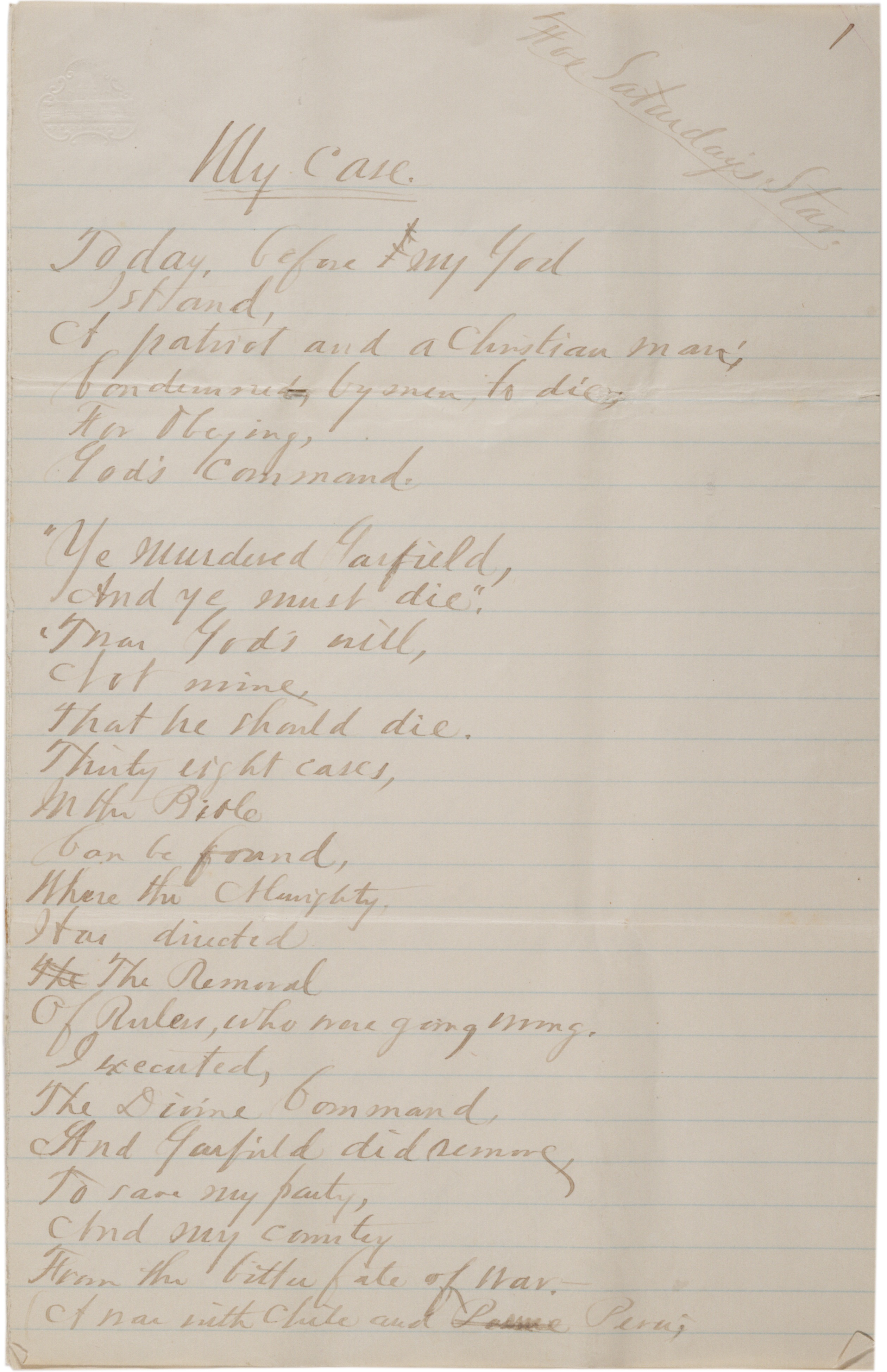Charles Guiteau's reasons for assassinating President Garfield, 1882
A Spotlight on a Primary Source by Charles J. Guiteau
 Charles Julius Guiteau employed the unusual medium of poetry to plead his innocence while on trial for assassinating President James Garfield. Guiteau’s odd behavior in court made him a media sensation, and the Gilded Age press eagerly published much of his irrational verse. While this poem was never printed, Guiteau was obviously worried about his historical legacy. The verse illustrates his obsession with fame.
Charles Julius Guiteau employed the unusual medium of poetry to plead his innocence while on trial for assassinating President James Garfield. Guiteau’s odd behavior in court made him a media sensation, and the Gilded Age press eagerly published much of his irrational verse. While this poem was never printed, Guiteau was obviously worried about his historical legacy. The verse illustrates his obsession with fame.
The poem is a unique look into the mind of one of American history’s more eccentric characters. Suffering perhaps from schizophrenia, Guiteau, an attorney, felt he was owed a government job for the few speeches he made in support of Garfield during the 1880 presidential campaign. After repeated attempts to obtain an ambassadorship, he was told by Secretary of State James Blaine never to return. This dismissal sent Guiteau into angry spasms of revenge that led him to shoot Garfield in 1881. Here Guiteau recapitulates his overtures and laces his poem with extreme religious imagery, calling the assassination a "Divine command." He attempts to satisfy his martyred ego and to vindicate his actions to posterity, writing "I saved our party and our land." Guiteau compares his plight to Moses’, writing "God kept Moses. / He will me. / I fear no man!"
A full transcript is available.
Excerpt
I executed
the Divine command.
And Garfield did remove,
To save my party,
and my country
From the bitter fate of War.
